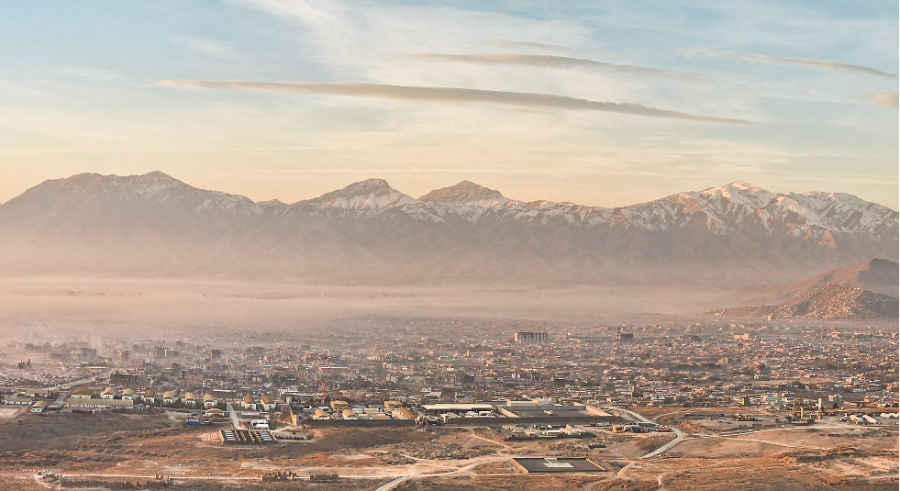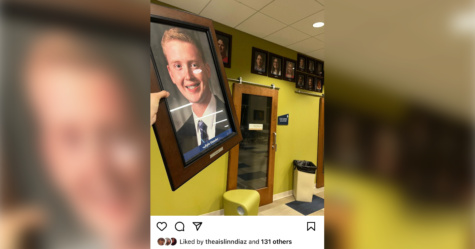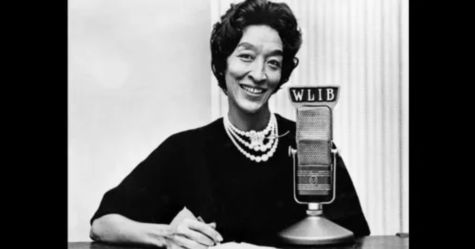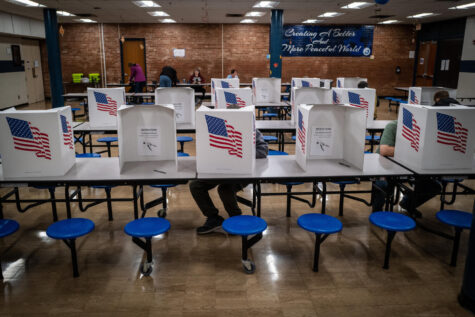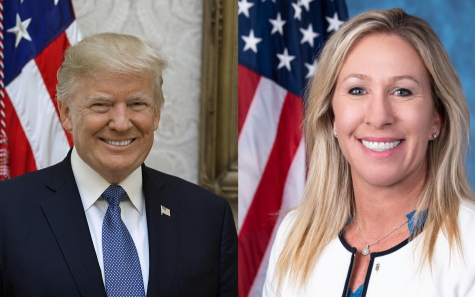Afghanistan: Was It Worth It?
Kabul, Afghanistan at Sunrise | © Crown Copyright 2013 | Photographer: Sergeant Paul Shaw RLC | Image 45156499.jpg from www.defenceimages.mod.uk
I remember it as if it were yesterday, Sept. 11, 2001, a day I will never forget. It was first period, Orchestra class, during my seventh grade year of middle school and my Chorus teacher burst into the room in a panic. Looking directly at our instructor, she implored, “Terry! Quick turn on the TV and see what’s happening in New York City, The World Trade Center has been hit by a plane!” The TV was switched on and everyone in the classroom watched in horror as the first plane, which was on fire, lodged into the north tower of the World Trade Center. A few minutes later, the room reacted with a collective gasp as a second plane struck the south tower of the World Trade Center. Through the next few classes, we remained glued to the TV, learning the Pentagon had been hit by American Airlines flight 77 from Dulles. I will never forget that flight because that is when it became all too real for me.
At the time, I lived in Baltimore, and my mother, a regional manager for a dermaceutical company, was flying out of Dulles that morning. She was flying on American Airlines around a very similar time to the takeoff of American Airlines flight 77. Let me assure you, my mother is ok, and gratefully so, because many people lost their family members that day. But, for hours I could not get ahold of her. I panicked; I went to the front office. This was prior to the age of teenagers having cell phones, and I frantically asked if I could call my Mom. I sat there for hours, until school was let out early, due to concerns of further attacks, and I couldn’t get in touch with my Mom. Finally, later that day after arriving home from school, I reached her. Crying, I said, “I thought you were on that plane” and we cried together. But, unlike 2,977 other families that day, my Mom came home. That day, for me, is forever burned into my mind.
I share this story because many of my fellow students at UIS were not alive or were barely old enough to remember what happened on 9/11. It was one of our country’s darkest hours, and despite that horrific day and the tragedy, sadness and pain it caused so many Americans, I was vehemently against the war in Afghanistan. And today, as I sit here and reflect on the over 30 years of failed policy that has led us here, I wonder to myself was it worth it. I interviewed Dr. Sibel Oktay, Associate Professor of Political Science and Global Studies in the UIS Political Science department, and she stated, “Hindsight is always 20/20. Most of us now reject the notion that we can bring liberal democracy to other countries by force, but back in 2002, this was the idea that many in Washington were fixated on. This was the biggest mistake.” Dr. Oktay, in these few sentences, identifies the biggest miscalculation of US long-term policy in Afghanistan.
It is important to provide some background on the atrocious, dark ages nature of Taliban rule in Afghanistan from 1996 to 2001. Dr. Oktay explained, “Imagine a country where women are stoned and beaten to death publicly for reading a book, or being whipped for wearing nail polish. Girls weren’t allowed to go to school.” This is a glimpse into a horrible and brutal reality, hard to be forgotten by the Afghan people, or the world. This history is important, because for the past two decades the Afghan people have lived in self-governance, and Afghan women have made leaps in bounds in the fight for their equality. It appears that there will be a return to the days of repression for the unforeseeable future. I asked Dr. Oktay about the possible prospects for women’s rights under new Taliban rule and she offered an interesting insight. “The Taliban takeover will certainly roll back the gains of the Afghan women and girls. I am just not sure how fast this process will be, though. Taliban wants recognition in the international community, so they might take their time to dismantle the existing rights and liberties that women and girls have enjoyed before the takeover.”
As a devotee of politics, policy and self-governance, I want to share this gift of democracy, which we are lucky enough to still have in this country, with the whole world. Though, Dr. Oktay is right, when expressing the thought that attempting to bring liberal democracy, by force, to a country featuring a history of fragmentation and instability, such as Afghanistan, was foolhardy. If we were there to take care of the terrorist threat, we should have done that and left, which, of course, is easy to say in hindsight. That point aside, we should never have been in the business of nation-building to begin with. Every administration, since the late 1970s, is responsible for the current state of affairs in Afghanistan. Our government, along with Pakistan under the leadership of Muhammad Zia-ul-Haq, supported the Islamic mujahideen fighters in an effort to rid the country of Soviet control. The horrors of the mujahideen warlords, the instability following the withdrawal of the Soviets, and the backing of Pakistan leaders later led to the rise of the Taliban. Now, we can be held responsible for the Taliban taking control of the country, not once but twice. We are responsible for forcing liberal democracy on Afghanistan in an effort to nation-build, when we never should have. We are responsible for the chaos currently underway at Hamid Karzai International Airport (HKIA). And we are responsible for the poor decisions made over the course of the administrations of eight US Presidents. This should be a clarion call to us that our government must stop going beyond the original missions of eliminating threats to us, supporting our allies and democratic principle and not engage in the imprudent and reckless project of nation building.
So now here we are, back into Afghanistan, just days after a fully executed withdrawal to engage in massive Noncombatant Evacuation Operations. A problem first created through the poorly negotiated Doha agreement by the Trump administration and the Biden administration’s insistence to lean on this poorly negotiated deal as the reason to leave. Personally, I think the Doha agreement removed much of our leverage, contributing to the current situation we find ourselves in at HKIA. Dr. Oktay comments, “Biden did not want to stay in Afghanistan, and the Doha Agreement became a convenient backdrop which he could lean on. ‘The previous administration tied our hands, so we had to do it’ “. This is ironic, considering how quickly after taking office Biden has disposed of many other poorly designed policies implemented by the Trump administration. The terms of the Doha Agreement did not secure very much for the US, cutting out the Afghan government from the conversation, and releasing 5,000 prisoners from Afghan jails. This helped lead to a demoralization of the Afghan forces, though there are many other dynamics in play as well.
Let me be clear, I support the withdrawal and putting an end to two decades of military engagement in Afghanistan. But, as they say, “the devil is in the details.” What I have a problem with is the poor execution of the withdrawal. Regarding the withdrawal, Dr Oktay said, “the withdrawal remains a popular decision both among the foreign policy establishment in Washington and among the public. But the way in which the withdrawal is handled has been disastrous (although more recently the process seems to be less chaotic). Most people, myself included, highlight this distinction. The US had a year to plan all the kinks of this withdrawal, taking into consideration all possibilities, including Ghani fleeing the country and the Afghan military defecting.” The more I think about the missteps and failures, in Biden’s attempt to make a grand gesture during the celebration of the twentieth anniversary of 9/11, the more I think about exactly what Dr. Oktay touches on: that the US had a year to plan this and how did we not account for all the possible situations that could have unraveled? These are questions we will be asking for days, weeks, months and possibly years to come.
As stated earlier, Biden is not solely at fault for being in this situation – however, he is the person responsible for the current state of affairs. Now we find ourselves in a sea of chaos, securing and operating an airport in a formerly occupied country, and watching the scenes of horror, tragedy and terror run across our televisions, smart phones and computers as we rush frantically to extricate approximately 100,000 people before Aug. 31. While no one knows for certain, we are hearing a common refrain that we will not get everyone out. And if we do not, the United States will have failed its solemn duty to the people who have placed their trust in us. Given this state of affairs, I asked Dr. Oktay about what she thought might be the fate of those left behind, and she answered, “imagine the catch-22 the local Afghan partners will be in if they are left behind: will they destroy all evidence of their cooperation with the US in order not to be caught by the Taliban, or will they keep the evidence for the off-chance that they will one day use it to enter the US but will live with fear of getting executed by the Taliban for being a ‘US agent’ as long as they remain in Afghanistan?”
There is an old expression to describe such a choice. It is “being on the horns of a dilemma.” A situation in which one must pick between two equally balanced choices. When the dilemma has horns, the choice becomes an impossible task. When caught on the horns of a dilemma, no matter which horn is chosen, something bad can transpire. This is truly an unimaginable position for people who have put everything on the line to help our country and they deserve to be evacuated no matter what it takes. Dr. Oktay continued, “the local partners, those ordinary people who worked with and for the US and NATO allies must be evacuated. They risked their lives and their families’ lives to support the US, and we have a duty to protect them. Taliban will hunt them down if these people are not evacuated, no question.” We owe these people the protection we promised, we cannot fail them in our solemn duty, or they are doomed to death and the world will never forget.
The Taliban are back in power and on the verge of having a country free of the United States military, and this situation brings also an increased threat to our homeland. One of the reasons we ventured into Afghanistan, following the 9/11 attacks, was the fact that they were housing terrorist organizations, specifically Al-Qaeda, who were implicated in planning, organizing and operating the attacks. One of the questions that I keep coming back to when I think about this is: are we still safe as we were prior to this? The answer is a clear and resounding no. We have no idea what to expect now that the Taliban has seized power in Afghanistan, we have lost much of our military and intelligence capability there and there are already reports of extremists making their way to the region. I posed the question to Dr. Oktay about whether she thought we may see a resurgence of this same type of terrorist housing behavior that brought us there in the first place. She said to me, “that’s the million dollar question. The Doha Agreement has clauses that seek to prevent this possibility, of course, but I don’t think anyone can guarantee that.”
It appears that the only protections are the vaguely worded terms provided in the Trump administration’s poorly negotiated Doha agreement, and this is a very scary thought for the future of our national security. The reality is the Doha agreement does not favor the United States and it never has. To think that we must rely on the Taliban, a group considered to be terrorist extremists themselves, to make sure that the country is not a hub for other terrorist groups is comically absurd yet exceedingly alarming at the same time. While I cannot see the future and, as I write this, we are still in the middle of the massive Noncombatant Evacuation Operations, I can say with certainty that we are at a new precipice in our national security. We live in a fragile time here in our country, where domestic extremism runs rampant, and it seems at times that our democratic republic is being held together by duct tape and super glue. Making our situation even more tenuous, we now have the shadow of a major national security concern on the horizon.
While President Biden repeatedly claims we will maintain “over the horizon capabilities”, these capabilities failed us prior to 9/11 and they could possibly fail us again. While I certainly hope that is not the case, where we are today compared to just a month ago is a shocking reality check concerning the very real and present dangers that still threaten us from terrorist groups abroad. There have already been multiple terror attacks at HKIA which have taken the lives of 13 service members and wounded 18 more, at the time of this writing. The Afghan Ministry of Health has announced at least 79 Afghan deaths due to those same attacks, at the time of the writing. My heart goes out to the families and friends of all the service members and Afghans lost in these horrendous attacks. I want to be optimistic. Like my mother says, “look on the bright side” – but the bright side is very dim at best in the situation we find ourselves in. While it is true it is always darkest before it is dawn, the real question is will it get darker? Which brings me full circle, to that frightful day that shocked our country, the day forever burned into the deepest parts of my mind that will never let me forget. Just like the Afghan people we swore to protect and save will never forget if we fail them as well.

